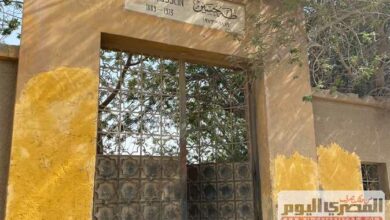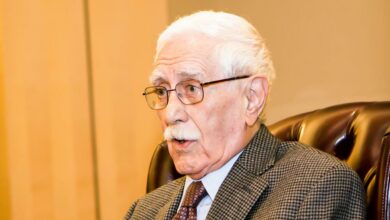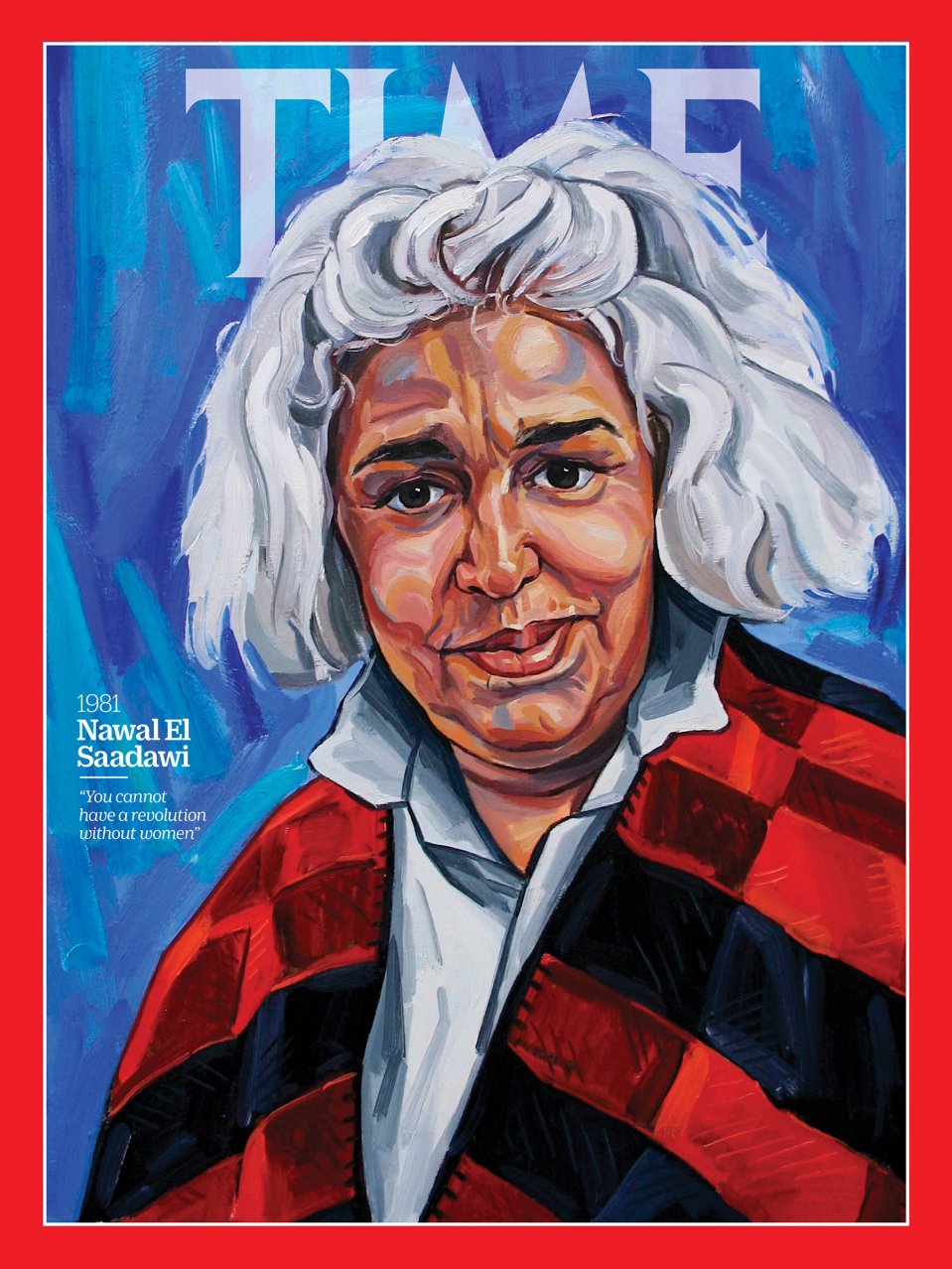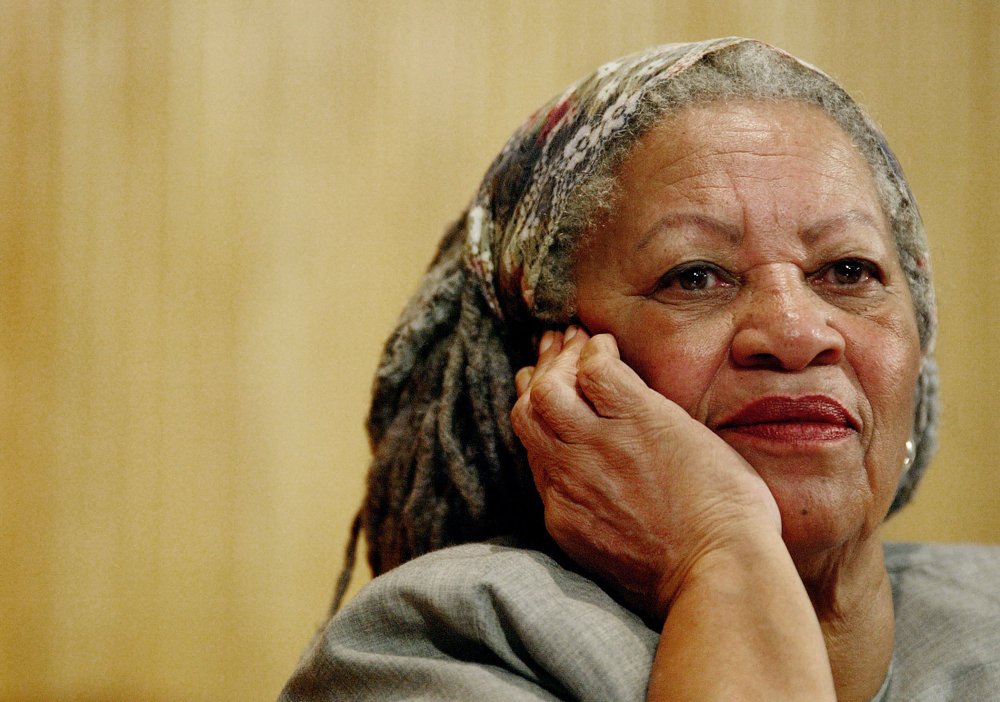After graduating from Alexandria University with a degree in English Literature, novelist and professor of sociolinguistics Reem Bassiouney completed her PhD in Linguistics at Oxford University in London. She is the author of numerous short stories and novels, including Baeea Alfostoq(The Pistachio Seller) and Dr. Hanaa,which won the Sawiris Foundation award in 2009.
The Pistachio Seller was first published by Madbuly in Arabic and translated into English in 2009. It tells the story of Wafaa, a conservative Egyptian girl, who falls in love with her cousin, Ashraf, an Egyptian raised in England, who plans to spend only one year in Egypt. Ashraf, however, falls in love with a Marxist journalist. The novel describes beautifully the love triangle between the conservative Wafaa, the liberal journalist, and Ashraf; in doing so Bassiouney brings to light typical conflicts within Egyptian society.
Dr. Hanaa tells the story of a middle-aged single woman, Dr. Hanaa, who decides to celebrate her fortieth birthday by losing her virginity and ends up falling in love with the man chosen for the task. Bassiouney’s Hanaa reflects the difficulties that a single, well-educated, and rich woman has when trying to have a relationship with an Egyptian man. It also portrays how Egyptian society perceives single women.
While in town for a book signing, Reem Bassiouney spoke to Al-Masry Al-Youm about writing and Egyptian society.
Al-Masry Al-Youm: How do you feel about being described as a writer of women’s issues?
Reem Bassiouney: I don’t like to be labeled a woman writer, and I don’t know why exactly my readers feel that I am one, but I agree this is the perception.
Al-Masry: Tell me about the depiction of religion in your novel Dr. Hanaa.
Bassiouney: In the West, Islam is viewed as a tool to brainwash and suppress women, but I don’t see it that way. I wanted to show that, on the contrary, religion can be used as a positive tool for women. In Egypt, women who are religious or act in a religious way are more respected, they acquire more authority.
Al-Masry: In Dr. Hanaa, the divorced character, Laila, uses religion as a tool to help with her problems, not not as a way to express her love for God or her faith. Have you been criticized for this?
Bassiouney: Yes, you’re right about that, but thankfully none of my critics mentioned it. I wanted to show that religion could provide a way out of Laila’s problems, that it could even rescue from her crisis.
Al-Masry: In your novels, you portray both traditional Egyptian girls and “Americanized” Egyptian girls. How are they different? Where do these differences come from?
Bassiouney: I think that the typical Egyptian girl is more indirect when it comes to elaborating her emotions or ideas. She is also more naïve, and more faithful than her “Americanized” counterpart. In my opinion, these differences are a result of the manner in which each girl is raised. In Egypt, girls are less likely have the right to state their opinions frankly, and so they are accustomed to adjusting what they want to say.
Al-Masry: How do you suppose the average 40-year-old single woman feels?
Bassiouney: Some women are happy to be living alone. They prefer not to get married, choosing instead to have a successful career. I don’t think that a single virgin of that age would feels like a teenage virgin.
Al-Masry: Most of your novels focus on the relationship between men and women in Egypt. How do you feel a foreign man differs from an Egyptian one?
Bassiouney: I think men all over the world see themselves in the same way. They all feel they have superiority over women. But Egyptian men expect more from women. They also suffer more from various stressful economic and political circumstances, in addition to social pressures.
Al-Masry: Describe extramarital relationships in Egypt.
Bassiouney: Those relationships are full of conflict and sexual tension. The woman feels very insecure about the man. She wonders constantly whether or not he respects her, whether he plans to marry her, and whether he is cheating on her.
Al-Masry: Please describe Dr. Hanaain one sentence.
Bassiouney: Dr. Hanaa is about the problems facing an Egyptian woman.
Al-Masry: Please describe The Pistachio Seller in one sentence.
Bassiouney: The Pistachio Selleris more than a love story; it describes the history of Egypt and, specifically, the country’s open-door policy.
Al-Masry: Tell us something personal about Reem Bassiouney.
Bassiouney: I am married to a German man.




